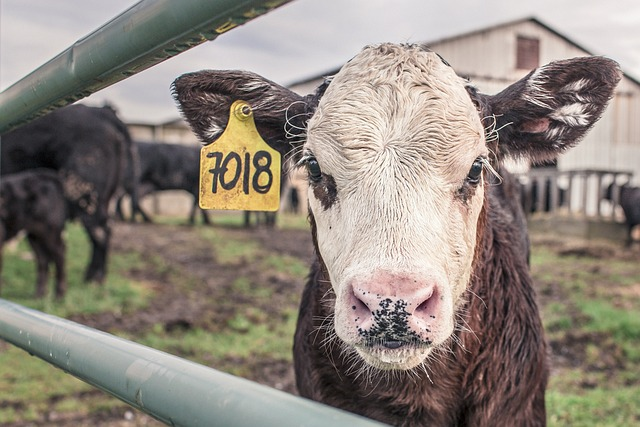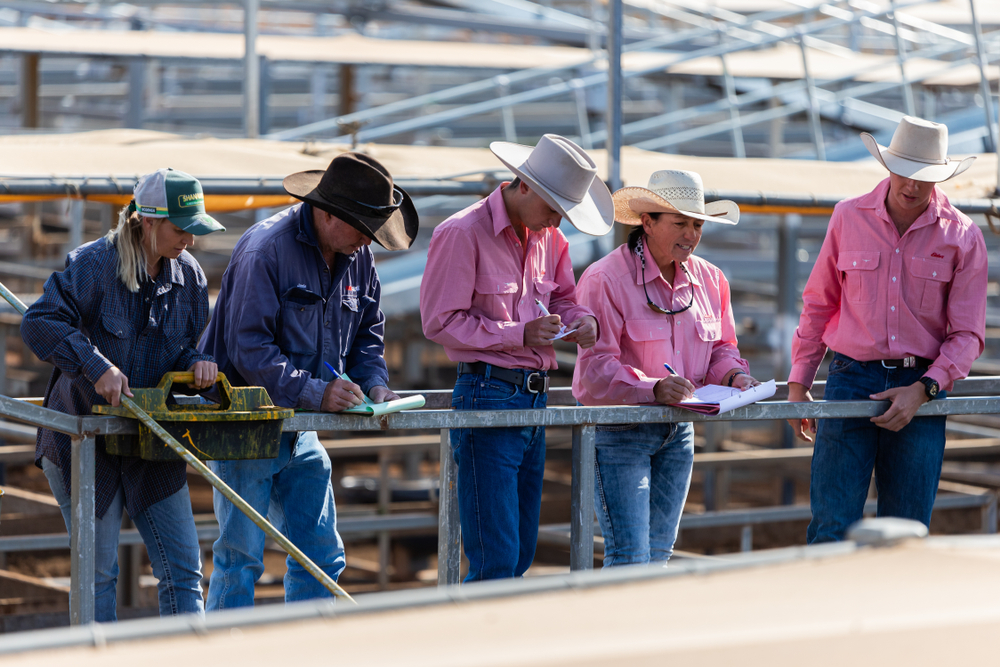Agriculture finance is a crucial aspect of the farming industry, especially in a vast and diverse country like Australia. Whether you’re running a large-scale agribusiness or a small family farm, understanding the intricacies of agriculture finance can significantly impact your business’s success and sustainability.
Let’s explore the different facets of agriculture finance, focusing on the Australian market, and provide you with the insights and tools needed to navigate this complex landscape effectively.
The Importance of Agriculture Finance

Agriculture finance encompasses a range of financial services and products designed to support farmers and agribusinesses. These services include loans, leases, and other forms of financing tailored to meet the specific needs of the agricultural sector. By providing the necessary capital, agriculture finance enables farmers to purchase land, equipment, livestock, and other essential resources.
Key Statistics on Australian Agricultural Businesses
According to IBISWorld, the Australian agriculture industry generates over $60 billion annually, contributing significantly to the nation’s economy. Additionally, the Australian Bureau of Agricultural and Resource Economics and Sciences (ABARES) reports that the agriculture sector employs around 250,000 people, highlighting its importance to rural communities and the broader Australian economy.
Types of Agriculture Finance Products

When it comes to agriculture finance, there are several products available to suit the diverse needs of farmers and agribusinesses:
-
Agricultural Loans: These are specifically designed for the farming sector, providing funds for purchasing property, livestock, equipment, and covering operational costs. Loans can be short-term or long-term, depending on the requirements of the farming business.
-
Equipment Leasing: This option allows farmers to use machinery and equipment without the need for a large upfront investment. Leasing can be a cost-effective way to access the latest technology and maintain productivity. An Asset Finance Broker can make this process easier while potentially negotiating better terms.
-
Lines of Credit: These provide flexible access to funds, enabling farmers to manage cash flow and cover unexpected expenses. A line of credit can be particularly useful for dealing with seasonal fluctuations in income and expenses.
-
Agricultural Mortgages: These are used to purchase farmland or refinance existing property loans. Agricultural mortgages often come with favorable terms tailored to the unique needs of farmers.
-
Livestock Financing: This type of finance helps farmers acquire livestock, supporting the expansion and diversification of their farming operations.
Working with Professional Finance Brokers

Professional finance brokers such as Smart Business Plans Australia play a vital role in the agriculture finance landscape. We have the industry knowledge and expertise to help you navigate the various financing options available to access working capital.
By working with a finance broker, you can ensure that you’re getting the best possible terms and rates for your financial needs. They can also assist with the application process, making it easier to secure the funds you need to grow your business.
Financial Support for Rural Communities
Rural communities rely heavily on the agricultural industry for their economic well-being. As such, providing financial support to farmers is not only beneficial for individual farming businesses but also for the broader rural economy.
Many financial institutions in Australia offer specialised services and products designed to support farmers and rural communities. A professional finance broker can show you these options and how they might fit with your goals.
Navigating Financial Challenges

Farming can be a volatile industry, with factors such as weather conditions, market fluctuations, and changes in government policy impacting profitability. Having a solid financial strategy (and succession planning) in place can help mitigate these challenges. Here are a few tips for managing financial risks:
-
Diversify Income Streams: Diversifying your farming operations can help spread risk and increase financial stability. This might involve growing different crops, raising various types of livestock, or investing in agritourism.
-
Access to Financial Advice: Regularly consulting with financial experts can provide you with valuable insights and help you make informed decisions. Financial advisors can assist with budgeting, tax planning, and investment strategies.
-
Use of Technology: Investing in modern farming technology can enhance efficiency and productivity, leading to better financial outcomes. Precision farming tools, for example, can help you optimize resource use and reduce costs.
The Role of Banks and Financial Institutions
Australian banks and financial institutions offer a range of services specifically tailored to the agricultural sector. These include loans, lines of credit, and insurance products designed to protect against risks such as crop failure and livestock loss.
This is one of the key benefits of working with a business finance broker who has worked in this space for a number of years. They focus on building strong relationships with banks and financial institutions, which can mean you get access to the financial resources you need to on better terms than you could negotiate yourself.
Financial Needs of New Agribusiness Entrants

New entrants to the farming industry often face unique financial challenges, such as securing initial capital and establishing creditworthiness. Fortunately, there are programs and grants available to support new farmers. For example, the Australian Government’s Farm Management Deposits (FMD) scheme allows farmers to set aside pre-tax income in good years to cover expenses in leaner times, providing a valuable financial cushion.
Agricultural Finance for Expansion
If you’re looking to expand your farming business, agriculture finance can provide the necessary funding for purchasing additional land, upgrading equipment, or increasing livestock numbers. Expansion can lead to greater economies of scale and improved profitability, but it’s essential to carefully assess the financial implications and ensure that you have a solid business plan in place.
Frequently Asked Agribusiness Questions
1. How much deposit do I need for a farm loan?
For a farm loan in Australia, the deposit typically ranges from 20% to 30% of the property’s purchase price. However, this can vary depending on the lender, the size and location of the property, and the borrower’s financial situation. Some lenders may offer loans with a lower deposit requirement if the borrower has a strong credit history and solid business plan. Talk to your commercial finance broker to better understand what may be required depending on your circumstances.
2. What is the interest rate on farm loans in Australia?
The interest rate on agribusiness loans in Australia can vary widely based on factors such as the lender, loan type, and borrower’s credit profile. As of 2024, interest rates for farm loans typically range from 4% to 7%. It’s important to shop around and compare offers from different lenders to find the best rate for your situation. Additionally, some government-backed loans might offer more competitive rates.
3. How much to buy a farm in Australia?
The cost of buying a farm in Australia can vary significantly based on location, size, and the type of farming operation. As a rough guide:
-
Small hobby farms can range from $500,000 to $2 million.
-
Medium-sized farms typically range from $2 million to $10 million.
-
Large-scale commercial farms can exceed $10 million.
Prices can also be influenced by factors such as soil quality, water availability, and existing infrastructure on the property. Finance brokers such as Smart Business Plans can assist you in with all of these loan ranges.
4. Which bank is best for a farmer loan?
Several banks in Australia are known for their strong support of the agricultural sector, including NAB, CommBank, ANZ and RaboBank. Premium business finance brokers have established relationships with all the major lenders, and many tier 2 lenders, so it’s a good idea to leverage their relationships and access to a wide range of financial products.
The best lender for your farmer loan will depend on your specific needs, location, and the type of farming operation you run. We can walk you through the process, find the best options, and make the application process as quick and easy as possible.
8. How much can I borrow for a farm loan?
The amount you can borrow for a farm loan in Australia depends on several factors, including:
-
The value of the property you’re purchasing.
-
Your deposit size.
-
Your credit history and financial position.
-
The profitability and sustainability of your farming business.
Typically, lenders may offer farm loans ranging from $100,000 to several million dollars. It’s essential to provide a comprehensive business plan, cash flow forecasts and financial statements to support your loan application and demonstrate your ability to repay the loan. Consulting with a finance broker can also help you determine your borrowing capacity and find the best loan options available.
What now?

Agriculture finance is a vital tool for supporting the growth and sustainability of the farming industry in Australia. By understanding the various financial products and services available, and working with knowledgeable finance brokers and financial experts, you can effectively manage your farming business’s financial needs. Whether you’re looking to expand, invest in new technology, or plan for succession, the right financial support can help you achieve your goals and ensure the long-term success of your farming operation.
As you continue to develop and expand your farming operations, remember that the right financial support is just as important as the seeds you plant in your fields.
The team at Smart Business Plans are here to help you every step of the way.

